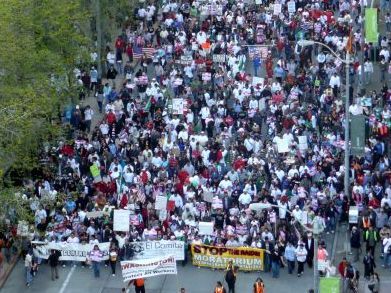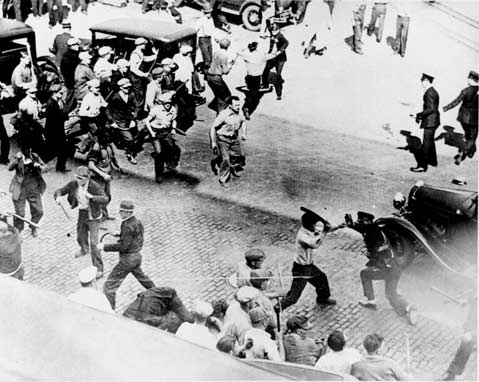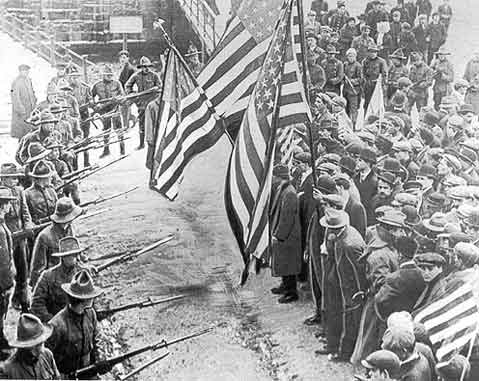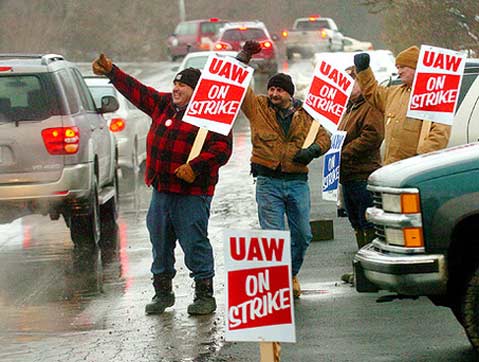Why Does the Right Hate Organized Labor?
UCSB Conference Examines Labor Politics Between Conservatives and Unions

A conference will be held this weekend at UCSB discussing the history of the intense, systematic hostility American conservatives have displayed against unions. The keynote speaker, Fred Feinstein, will talk about his experiences dealing with this issue firsthand for 17 years on Capitol Hill, after which he was appointed by President Bill Clinton as general counsel of the National Labor Relations Board. The conference was organized by the UCSB Center for the Study of Work, Labor, and Democracy.
Feinstein described the conservative hostility as “[a] consistent, steadfast, unified opposition : to union rights and growth initiatives.” Among the claims made by conservatives and employers against unions is that they are inherently corrupt, unnecessary, bad for the economy, and inefficient. But Feinstein said that this does not accurately characterize the nature of what is going on. He plans to discuss how those who oppose working class self-organization operate in Washington, and what his experience was like.

The conference – which begins Friday, January 16 and continues through Saturday, January 17 in the Humanities and Social Sciences Building’s McCune Conference Room – will focus on the Progressive Era through the present, highlighting such contentious issues as labor racketeering, capital mobility, race, ethnicity in union organizing, and the American South in U.S. politics. Another big issue that is particularly relevant today is the controversial Employee Free Choice Act (EFCA), which seeks to deter employers from intimidating or firing employees during the lengthy union election process. It also seeks to strengthen penalties against companies that violate labor laws.
Nelson Lichtenstein is the director of the Center for the Study of Work, Labor, and Democracy, and co-organized the conference with Elizabeth Shermer. “The conference is about the general structure of labor politics in America, and why there is this intense hostility,” he said. He said that public unionism is weaker than ever – only one-third of the size it was 50 years ago – but unions have moved into areas that are very sensitive. Lichtenstein added that whatever they do now has an impact on taxes and politics.
Lichtenstein said that unionism has shrunken dramatically over the last 30 to 40 years as a result of employer opposition. “Where’s the cordial, collective bargaining taking place? It isn’t taking place,” he said, adding, “It’s like an election in an authoritarian country.”

He explained that the lengthy election process to form a union involves the employer sending in executives who hold what are called “captive audience meetings.” The employer thereby uses lectures, films, and other propaganda to intimidate employees, even threatening to shut down stores, according to Lichtenstein. He said that throughout this process, the employees are not allowed to ask any questions. Furthermore, he said that employees are then sat down for one-on-one meetings where they are discouraged from joining the union. Finally, he said lawyers delay the election for as long as possible.
On the other hand, conservatives claim that unions are inherently corrupt and use “thuggish union organizers” to intimidate workers to sign union cards, according to Lichtenstein. “One thing the conference will explore is the definition of racketeering,” he said. He added that racketeering was invented in the Progressive Era as a way of attacking the unions that sought to make wages and prices level across the market. He said that the criminal definition has expanded dramatically through the courts since then.

Keynote speaker Feinstein, who will speak at the UCSB Faculty Club on Friday night at 6 p.m., has worked on a number of labor bills and said he supports the EFCA. His legislation has supported and advanced the rights of organized labor. He believes the EFCA will help the economy and help rebuild the middle class. He said that unions will play an important role in revitalizing the economic middle class.
Feinstein also said that the penalties currently in place to protect organized labor “do little if anything to deter law breaking” by employers. He added that companies face little cost or consequence as a result of violating labor laws.
For more about the conference, go here. For a complete schedule, go here.



